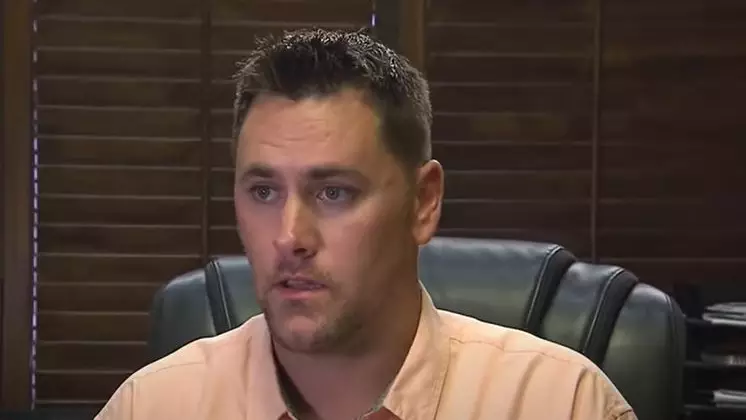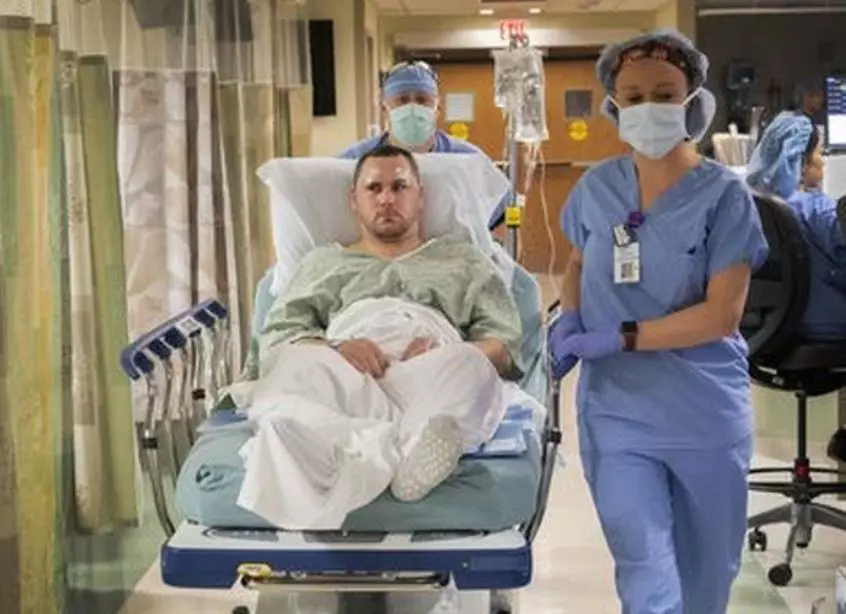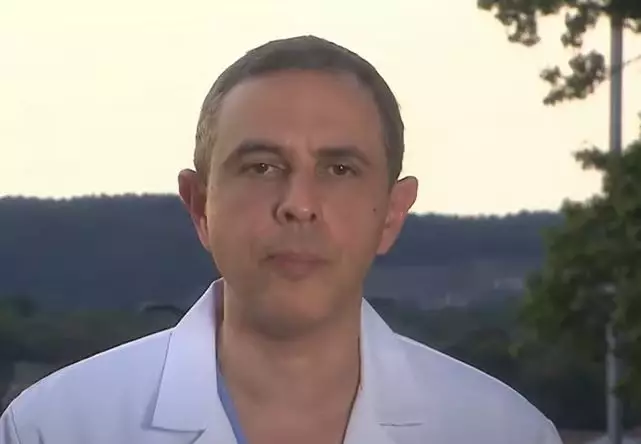
A new brain surgery has helped a man battle his 18-year addiction to opioids.
Gerod Buckhalter, from the US, has struggled with substance abuse for almost two decades.
That was until the 33-year-old had what lead doctor Ali Rezai at West Virginia University Medicine Hospital described as a 'pacemaker for the brain'.
Advert
After undergoing a series of scans, surgeons made a small hole in Gerod's skull and inserted a tiny 1mm electrode in the area of the brain that controls addiction and impulses.
A small battery was then placed in his collarbone, with doctors monitoring his brain activity to see whether there had been a reduction in his cravings.
The procedure is called deep brain stimulation (DBS), and one year on from the operation, Gerod is still clean and sober.

It is hoped this is a sign of things to come, with the procedure also being used to treat thousands of other patients who live with Parkinson's, epilepsy and OCD.
Advert
Speaking to Good Morning America about his life before the operation, Gerod said: "The only thing you want to do is get high, because that's all you know how to do.
"I tried every avenue of recovery that you could possibly find."
He added: "I was as bad as they can get, and if it can help me, it can help anybody."
Dr Rezai says this represents a huge step in helping those overcome some of the biggest challenges they face.
Advert
He told the BBC last year: "Addiction is complex, there are a range of social dynamics at play and genetic elements and some individuals will have a lack of access to treatments so their brains will slowly change and they will have more cravings.
"This treatment is for those who have failed every other treatment, whether that is medicine, behavioural therapy, social interventions. It is a very rigorous trial with oversight from ethicists and regulators and many other governing bodies."

But while DBS represents a major breakthrough, with the potential to change millions of people's lives, Dr Rezai made it clear that it is not intended to be a cosmetic procedure and should not be treated as such.
Advert
He added: "I think it is very good for science and we need more science to advance the field and learn more about the brain.
"This is not for augmenting humans and that is very important. This is not a consumer technology.
"When it comes to applications, it needs to be heavily regulated. This is not like getting a flu shot or a tattoo.
"Surgery has inherent risks and is not trivial. It is only for those with chronic disease who have failed all other treatments and are without hope."
Featured Image Credit: Good Morning America/ABCTopics: Science, US News, Drugs, Technology